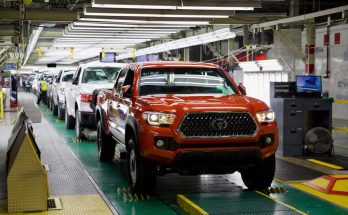By Francisco Peyret
Those of us who were born in the decades after World War II recognize that we lived through a time of development and economic growth. In Mexico, this was known as Stabilizing Development (1950-1970), where the economy grew at a rate of up to 7% per year. An oil boom arrived in the 1970s, which we paid for with economic austerity during the 1980s. Finally, we closed the 20th century with the North American Free Trade Agreement, which increased the volume of the national economy.
For decades we have lived in a time where we venerated mass consumption of goods: cars, televisions, radios, clothing, home accessories, fashion, entertainment, and travel. Many of us grew up thinking that natural resources were infinite, until the late 1960s when environmental movements began to appear. By the end of the 20th century, the movements and laws that protect the environment grew considerably, but in the face of globalization and technological development, they still seemed relatively small. My friend Don Patterson says, «We take natural resources of all kinds like someone who goes to a supermarket, but when it comes to getting from nature, we leave without paying anything in return.»
Those born in the 21st century are going to face the consequences of what our generation, to a great extent, is guilty of. The limitation of natural resources and climate change are the reasons why the new generations are going to have to adapt to other consumption patterns and to the intelligent rationing of natural resources. But they do have technological development on their side, and with artificial intelligence, we will be surprised by the number of solutions that this technology can generate and offer to human beings.
I see two great challenges that are already causing serious problems for humanity and that we are not addressing head-on. The first is the supply of drinking water. According to statistics, 1.42 billion people live in vulnerable areas with extremely high water stress, of whom 450 million are children. The second challenge is food. According to the FAO, 33% of the world’s soils are degraded and are not capable of producing food. Soil degradation is a global problem largely related to agricultural use, deforestation, and climate change. According to official data, 810 million people suffer from hunger; one in 10 people in the world do not have enough food (FAO, 2020). Global overpopulation, the concentration of wealth, and the indiscriminate use of land are contributing to a large part of the population living in a state of food insecurity.
It is a fact that the generations born in the 21st century will enjoy all the technological developments arising from artificial intelligence. They find virtual friends with whom they can do their homework, select clothes, and even chat. The same technological evolution can help us find global solutions for big problems, such as those related to water and food. However, substituting robots for human beings in production will generate unemployment rates that we cannot calculate as of now. To give an example, General Motors of Guanajuato employs about 6,000 employees in the plant, while Tesla’s mega investment in Nuevo León will employ only about 600 workers in their plant.
Artificial intelligence is a double-edged sword. The new generations not only have the challenge of adapting to climate change; they also have to adapt to a technological revolution that can spectacularly benefit them, but at the same time threaten to displace them. We are facing a future that a few decades ago seemed like science fiction. Today’s children will have to put on the capes of super-heroes to save the world. Solutions must be found by changing current consumption patterns, the relationship of humans with nature, and, fundamentally, the return to the essence of human beings who still live and love life itself.




